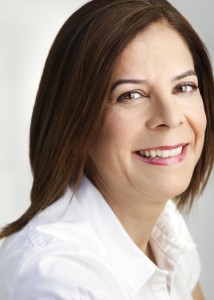Today is the third stop of Désirée Zamorano’s virtual book tour celebrating her new novel. Mercy Amado has raised three girls, protecting them from their cheating father by leaving him. But Mercy’s love can only reach so far when her children are adults, as Sylvia, Celeste, and Nataly must make their own choices to fight or succumb, leave or return, to love or pay penance. When tragedy strikes in Sylvia’s life, Mercy, Celeste, and Nataly gather support her, but their familial love may not be enough for them to remain close as the secrets in their histories surface. Forgiveness may not be accepted. Fiercely independent, intelligent, they are The Amado Women.
Melanie Page: Did you at any time feel like the characters’ jobs defined who they are?
Désirée Zamorano: I certainly feel that their jobs are an expression of who they are, the pressures they face, and the dreams they hold. I particularly enjoy the contrast between Mercy’s teaching experience and that of Sylvia’s. So many people think, either because they’ve gone to school all their lives or that there are so many teachers, that teaching is an easy job. It is actually probably one of the hardest unsung ones, equivalent to parenting.
MP: The Amado Women suggests that the characters are responsible for the lives of others. If a woman does something wrong, it could kill someone she loves. Could you talk a bit about personal responsibility in your novel?
DZ: I think there is an exaggerated sense of responsibility in many of these characters. America is the land of the rugged individualist, and deep down many of us believe we are completely responsible for the successes and failures in our own lives. Other countries actually feel our lives are intertwined, and we share responsibilities as a community. The Amado women have a cocktail shaker of both, and sometimes it’s an emotionally lethal combination.
MP: There are legal issues that take place in The Amado Women. Did you do any research to learn more about legal proceedings surrounding divorce and custody? What did you discover?
DZ: Yes I did. A lawyer friend gave me another lawyer’s number, an expert in the field, to call. I called and explained the conflict in the plot and what I was trying to do in the novel and the lawyer said, “You know, it’s all right. I understand, you’re welcome to come to my office. I’m sure we can figure things out.” Oh, dear! He thought I was in the predicament I depict! I don’t think he ever believed me when I told him this was research.
MP: The Amado sisters don’t always get along. In fact, they don’t always freely give forgiveness, to each other or themselves. Could you talk a bit about that?
DZ: An early audience member after a reading asked me if the sisters were all about judging each other. It’s an interesting question, but I think they hold themselves to impossible standards, which is connected to their painful and overwhelming sense of responsibility. For example, Celeste’s life was filled with promise at 18 and then took a very sharp turn. Part of her feels she never righted her path, and that brittleness keeps her apart from her family.
MP: All of the children in Mercy’s family are female. How might this novel be different if one of the siblings were male, or if Sylvia’s children were boys?
DZ: I have been surrounded by powerful, complex women throughout my life. It was their lives that I wanted to explore.A different cast would indeed be a different novel, and truly my intent was to explore the lives of women. I think there have been plenty of novels about the lives of men. 😉
MP: Who designed the cover? In what way does it represent the novel?
DZ: Paco Casas is the gifted illustrator. I gasped when my publisher shared it with me, I think it is so beautiful. As I shared it with friends one said, “From Pasadena looking onto LA.” From that perspective it embodies both my life and the lives of the women.
MP: How long did it take to write The Amado Women? Did the project change drastically from beginning to end?
DZ: Ack! Years! This route was circuitous! A few snatches: I had a big deal NYC agent shopping around my PI novel Human Cargo. While she did that I finished a working draft of this, then sent it off to the agent for feedback. Her feedback was final: a month or so later she dropped me. I tackled another revision, and while I left my home for lunch someone snuck in through a kitchen window and stole the only thing in my entire house that held any value for me: my laptop. This was before dropbox. After a mourning period, I cobbled together what I could and tackled another draft. Without an agent I queried publishers directly–and when a revision for Cinco Puntos did not meet their standards, I essentially put it aside and worked on other novels. Finally, it was Cinco Puntos nudging me that brought the novel to the public. Thank God for them!
MP: Are there any books or stories that helped you develop, or that inspired, The Amado Women?
DZ: The stories of the lives of the women I know are what inspired me to write this novel. However, as I mulled over it and tackled revisions, I felt a deep connection to (and envy of!) what Elizabeth Strout accomplished in Olive Kitteridge.
MP: Would The Amado Women make a good book club pick?
DZ: The Amado Women actually has been chosen by a national organization, Las Comadres, as their book club pick (August 2014). I hope the depth and complexity of the characters would make it a great book to discuss, or pick apart, agree or disagree with. I also find it fascinating how readers identify with different characters, and want very much to know which character I am.
MP: What is the best compliment you’ve earned for The Amado Women?
DZ: I have gotten emails from readers who have devoured it in one sitting, which is completely gratifying to me. My most unexpected compliment was from a gentleman who emailed me to tell me how angry he was at me for something that happened in the novel. I took it as a profound compliment, because he was so emotionally connected and invested in the characters.
Follow along with the blog tour! Tomorrow, stop by Book Puke to learn more about the setting of The Amado Women, including photos, interesting details, and how the Amado woman navigate their cities. Also, check out yesterday’s stop at The Next Best Book Club blog.
Désirée Zamorano is Pushcart prize nominee, and award-winning short story author, Désirée has wrestled with culture, identity, and the invisibility of Latinas from early on, and addressed that in her commentaries, which have appeared in the Los Angeles Times and NPR’s Latino USA. She delights in the exploration of contemporary issues of injustice and inequity, via her mystery series featuring private investigator, Inez Leon (Lucky Bat Books). Human Cargo was Latinidad’s mystery pick of the year.
The Amado Women has been listed among 5 Must-Read Books for Summer 2014 by Remezcla, and has been named among Eleven Moving Beach Reads That’ll Have You Weeping in Your Pina Colada by Bustle.
 Désirée Zamorano is Pushcart prize nominee, and award-winning short story author, Désirée has wrestled with culture, identity, and the invisibility of Latinas from early on, and addressed that in her commentaries, which have appeared in the Los Angeles Times and NPR’s Latino USA. She delights in the exploration of contemporary issues of injustice and inequity, via her mystery series featuring private investigator, Inez Leon (Lucky Bat Books). Human Cargo was Latinidad’s mystery pick of the year.
Désirée Zamorano is Pushcart prize nominee, and award-winning short story author, Désirée has wrestled with culture, identity, and the invisibility of Latinas from early on, and addressed that in her commentaries, which have appeared in the Los Angeles Times and NPR’s Latino USA. She delights in the exploration of contemporary issues of injustice and inequity, via her mystery series featuring private investigator, Inez Leon (Lucky Bat Books). Human Cargo was Latinidad’s mystery pick of the year.
The Amado Women has been listed among 5 Must-Read Books for Summer 2014 by Remezcla, and has been named among Eleven Moving Beach Reads That’ll Have You Weeping in Your Pina Colada by Bustle.
![[PANK]](https://pankmagazine.com/wp-content/themes/pank/assets/images/pank-logo-large.png)

